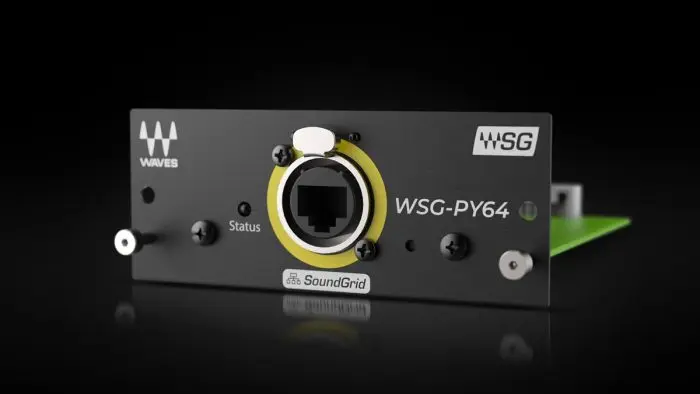Waves Audio has recently announced the continuation of its collaboration with Yamaha with an upcoming I/O card that adds the power of Waves plugins to DM7-Series consoles.
With the Waves WSG-PY64 I/O card, you can now integrate Waves plugins with your Yamaha DM7 console. Live sound engineers mixing on DM7 consoles can now run Waves’ award-winning plugins in ultra-low latency, complete with multi-track recording and playback.
With a setup consisting of a WSG-PY64-equipped DM7 console, a Waves SoundGrid DSP server, Waves SuperRack SoundGrid and a Mac or PC, you can now process 64 audio channels using Waves’ vast catalog of industry-leading EQs, compressors, effects, analog emulations, unique problem solvers, and more.
Noam Raz, Waves General Manager/Live Division, comments, “We are delighted to deepen our partnership with Yamaha with the expansion of our product lineup for their DM7 digital mixing consoles, enabling enhanced processing with Waves’ industry leading plugins.”
“The combination of compact-yet-powerful DM7 series consoles and award-winning Waves plugins offers unlimited possibilities for sound creation,” adds Thomas Hemery, Senior General Manager at Yamaha’s Professional Solutions Division. “Yamaha has a long relationship with Waves and we will continue to collaborate, providing more options and the best operating possibilities for audio engineers.”
Waves WSG-PY64 I/O card features
- Run Waves plugins on Yamaha DM7 consoles.
- Ultra-low latency: only 0.8 ms.
- 64 I/O audio channels at 44.1 to 96 kHz sample rates.
- Connects to SoundGrid systems and SoundGrid-compatible devices.
- Record/play back in parallel to processing on Windows/ Mac.
The card is available to preorder for $999 USD, with shipping scheduled for May 2025.
More information: Waves Audio
 Save big with Plugin Boutique's Mixing Month Sale!
Save big with Plugin Boutique's Mixing Month Sale!

